
On Friday evening 15th July, a faction of Turkish military forces attempted to topple the democratically elected President, Erdogan. The group declared a martial law on Turkish state television in Ankara. President Erdogan asked citizens go to streets and oppose the coup d’état. The tanks and helicopters of the group clashed with citizens and police in the streets of Ankara and Istanbul. On early Saturday, president Erdogan landed at Istanbul’s Ataturk Airport and it was apparent that the coup failed. At least 265 individuals were killed and more than 1440 were wounded. The Turkish government accused Fethullah Gulen as the mastermind of the failed coup. More than six thousand army officers and judges many of whom believed to be supporters of the exiled cleric are detained by authorities. Turkey’s opposition parties and many world leaders condemned the attempted coup. But the U.S. and its European allies in NATO reacted to the coup with caution, urging restraint.
Somalia was the first country to condemn the coup. Somali president released a press statement around mid-night on Friday, just 2 hours after the announcement of the coup. He supported the democratically elected government led by president Erdogan stating that “it is unacceptable to reverse the democratic path that the people of Turkey enjoyed in the recent times of their history. This was unfortunate and we are very glad to hear that the evil forces who tried to turn Turkey into a violent ground have been defeated’’. Somalia’s Puntland president Abdiwali Gaas also congratulated Turkey for defeating the military faction who attempted the coup. “I want to extend my congratulatory message with the Turkish Government“, he said. The Coalition of Somali Political Parties did not miss the opportunity either to denounce the coup. In a statement, the coalition said “we are delighted to see the dark forces are defeated by the brave citizens of Turkey, the security forces and by the Turkish leaders”.
In addition, Mogadishu local authority organized a big rally against the coup and showed solidarity with the Turkish Government. Hundreds of Somalis including Mogadishu mayor, deputies, district commissioners, and religious leaders gathered at Daljirka Daahsoon square waving Somali and Turkish flags and visited the Turkey’s embassy in Mogadishu, which is the largest Turkish embassy in Africa. On Saturday afternoon, the Somali Prime Minster and some of his cabinet ministries also visited the Turkish ambassador to Somalia to further express Somalia’s support and solidarity. Somalis in Barawe city in Lower Shabelle also rallied against the coup. Similarly, Somalis in various countries reacted strongly on social media and condemned the unsuccessful coup.
Not only did the Somali government symbolically supported the Turkish government but it has also taken action against institutions believed to have links with those suspected of plotting the coup. The Council of Ministries issued orders to close down projects in Somalia run by Nile Organization which has links with Hizmet-Gulen Movement led by Fethullah Gulen. The Somali government also asked Turkish nationals working on these projects to leave the country in seven days. According to the Federal Minister of Information, the decision was taken after a request from Turkish Government. Nile Organization manages three schools in the country: two in Mogadishu and one in Hargeisa. It also runs a private hospital in Mogadishu known as ‘Deva’ and supports orphanages. In addition, the organization helped hundreds of Somalis to study in Turkey.
Despite the solidarity with which many Somalis have so far shown for the democratically elected Turkish government, the closure of this charity did not go well with the public. This is attributable to a number of reasons. Firstly, the decision was taken hours after the failed coup in Turkey without meticulous planning and study on potential consequences for Somalis. Secondly, the government did not mention any other business other than the education and health services that the organization was involved. Third, the organization was allowed to invest, decorate and use public premises in Mogadishu, which is a sign that the government had no problems with the organization initially. For whatever reason, and considering the capacity and commitment of the current federal government in the provision of education and health services to citizens, there are no guarantees that the Somali beneficiaries of Nile Organization projects will not face negative consequences. The organization may switch Mogadishu projects to Hargeisa, which is beyond the writ of Somali Federal Government, and students in Turkey sent by the organization are very susceptible.
The quick reaction and overwhelming support of Somali political leaders, administrative regions and citizens are predictable. First, Erdogan, the current president of Turkey, helped Somalia get the attention of the international community. He visited Somalia three times, August 2011, January 2015 and June 2016, and implemented tangible projects across the country. He was the first leader of his weight who landed Mogadishu after the civil wars and he came here with his wife, daughter, politicians, business people, celebrities and journalists in August 2011 at a time when Somalia was facing a severe drought, which caused the death of more than 260,000 Somalis. He pledged support and implemented development and infrastructural projects in Somalia in the past five years. Therefore, any attempt to undermine his rule is not welcome in Somalia. As Somali Foreign Minister put it, “Turkish people and their government have provided close to one billion dollars’ worth of aid, investment and infrastructure rebuilding since 2011 to Somalia”. More recently, Turkish government pledged an annual budgetary support of $24 million to the Somali government.
Second, Mogadishu is the largest beneficiary of Turkish engagement in Somalia. Since 2011, Turkey has constructed roads, hospitals, schools, and IDP camps in Mogadishu. Furthermore, they have invested in Mogadishu airport, added a new terminal, and started direct Turkish flight that linked Mogadishu to the rest of the world. Moreover, the management of Mogadishu port helped Somali government increase its internal revenue and promoted the export and import trade; Istanbul Municipality helped Mogadishu local government clean roads. Turkish business, humanitarian and development organizations were also active in helping Somalis in Mogadishu get skills, employment and quality services. Therefore, the quick response and support of Mogadishu residents towards the failed coup has sensible roots and reasons. The public who rallied in Mogadishu waving Turkish flags was a sign of how Turkey won their hurts and minds. The Turkish embassy thanked Somalis in Mogadishu for their solidarity and support.
Finally, many Somalis benefited from Turkish engagement with Somalia directly or indirectly. Thousands of students received full scholarships and attend universities in Turkey. Others got employment opportunities and/or skills. These among others, were some of the reasons why Somalis were overwhelmingly supporting the incumbent Turkish government and its leaders and were against the failed coup.
In this globalized world, the failed coup in Turkey had an immediate impact on the Somali lives and politics. Immediately after the coup, Mogadishu’s local government asked hundreds of people to protest and demonstrate in public against the coup. Given the security situation in the city, these protesters were vulnerable to al-Shabaab attacks. To say the least, inundating the embassy with high, mid and low ranking public officials including but not limited to the Mayor, District Commissioners, Premier and Ministers was unnecessary as it further increased the risk. The President’s press release and the media coverage could suffice. This was not also good for the security of the embassy at this time when al-Shabaab leader recently voiced their dissatisfaction with Turkey’s involvement in Somalia. While the Somali Federal Government’s overwhelming support for the current Turkish government is justified, the manner in which such support was conveyed was not, as it compromised public safety.
In conclusion, the failed coup against the current ruling AKP and Turkish government revealed Turkey’s influence on Somali politics and public opinion. The motto seem to be ’wherever Turkey goes Somalia goes’ – at least for now!
Mahad Wasuge
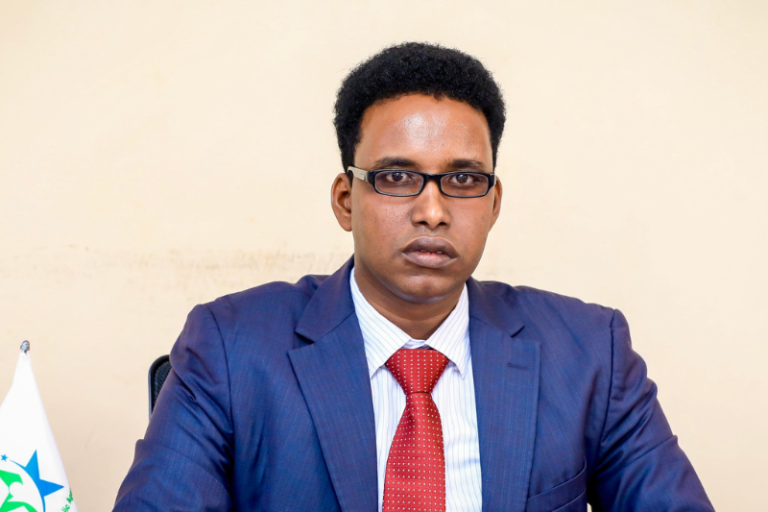
Is a researcher, teacher, podcaster and blogger. His work over the last decade has focused on teaching and researching governance, justice and social services in Somalia.

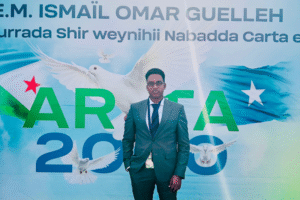

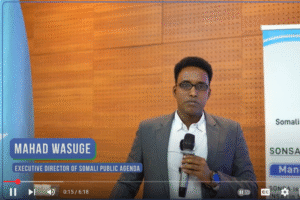

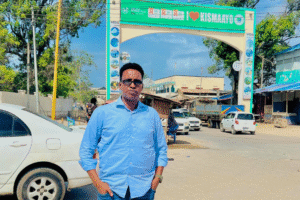
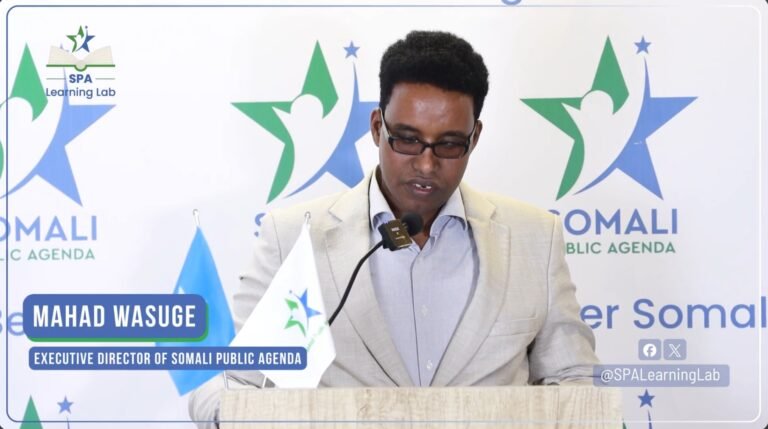


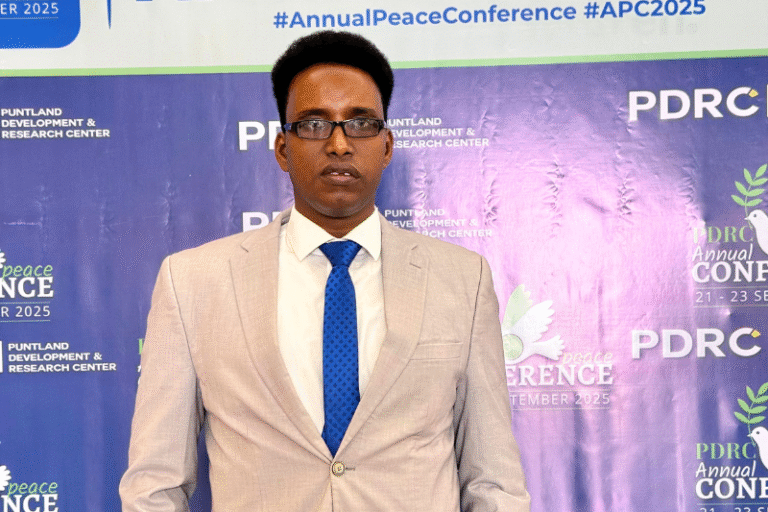
2 Responses
Waa maqaal aad u wanaagsan oo cabiray wacyiga hadda tagaan, waad ku mahadsantahay.
An excellent piece of writing.